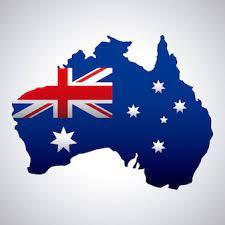Australia is a country that offers many opportunities and challenges
Australia is a country that lies in the southern hemisphere, occupying the smallest continent in the world and several islands in the Indian and Pacific oceans. Australia is the sixth-largest country by land area and the 14th-largest by population, with about 27 million people. Australia is a federation of six states and two territories, each with its own government and laws. Australia is also a constitutional monarchy, with Queen Elizabeth II as the head of state and a prime minister as the head of government1
Australia has a diverse and unique geography, climate, flora, and fauna. It has vast deserts, tropical rainforests, snowy mountains, coral reefs, and sandy beaches. It has many endemic species of animals and plants, such as kangaroos, koalas, platypuses, eucalyptus trees, and acacias. It has the world’s largest coral reef system, the Great Barrier Reef, which stretches for over 2,300 km along the northeast coast of Queensland. It also has the world’s largest monolith, Uluru (also known as Ayers Rock), which rises 348 m above the desert plain in the Northern Territory12
Australia has a rich and varied history and culture, influenced by its indigenous peoples, European settlers, and immigrants from various parts of the world. The Aboriginal Australians are the original inhabitants of the continent, who have lived there for at least 50,000 years. They have developed diverse languages, cultures, arts, and religions, and have a strong connection to the land and nature. The Torres Strait Islanders are another indigenous group who live on islands between Australia and Papua New Guinea. They have a distinct culture and identity from the Aboriginal Australians, influenced by their Melanesian ancestry and maritime lifestyle
The first European contact with Australia was by Dutch explorers in the 17th century, who mapped parts of the west and north coasts. The first British settlement was established in 1788 at Sydney Cove by a fleet of convicts and soldiers sent by King George III. This marked the beginning of British colonization of Australia, which expanded throughout the 19th century through exploration, warfare, migration, and federation. The Australian colonies became self-governing in the late 19th century and united as a single nation in 1901. Since then, Australia has developed as a modern democracy with a strong economy, social welfare system, and multicultural society14
Australia is a country that offers many opportunities and challenges for its people and visitors alike. It is a country that values its freedom, democracy, diversity, and innovation. It is a country that faces problems such as droughts, bushfires, floods, cyclones, environmental degradation, social inequality, racism, reconciliation with its indigenous peoples, immigration policy, regional security, and global relations. It is a country that hopes for its future through such things as sustainable development, social justice, cultural harmony, scientific advancement, artistic expression, sporting excellence, and international cooperation. It is a country that is more than just a name; it is a nation with a spirit.

